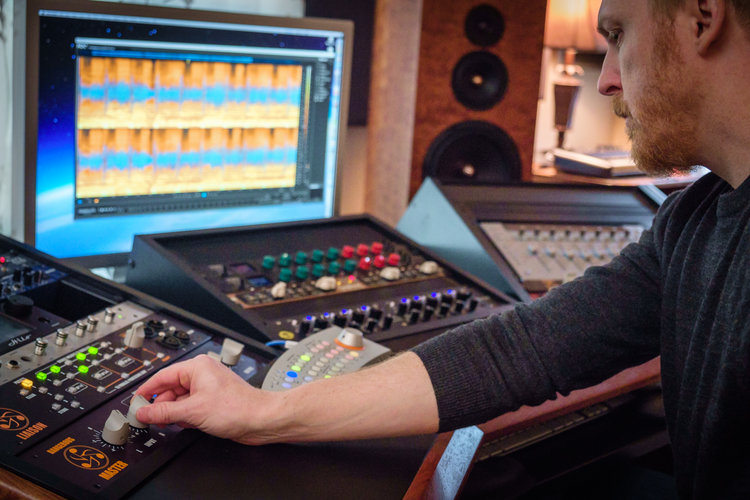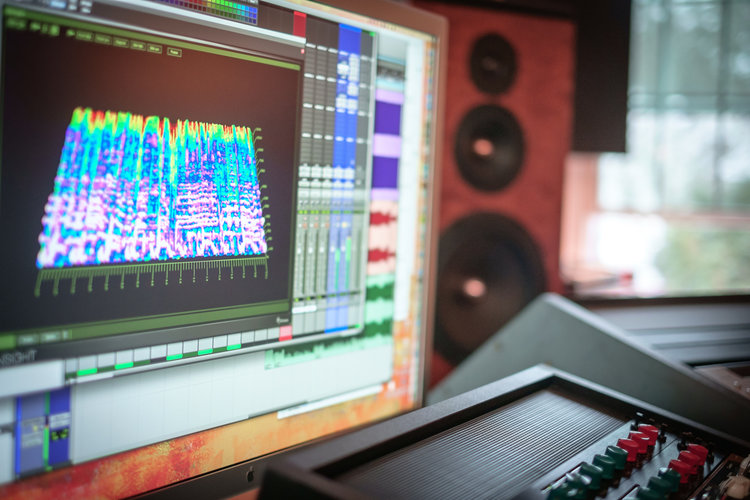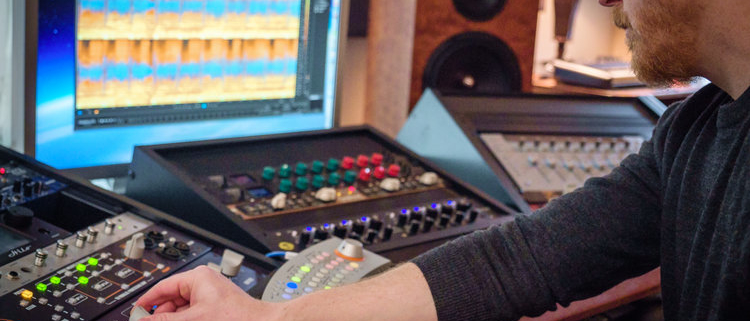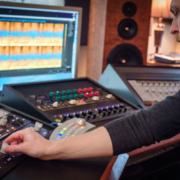Mastering Explained
When it comes to audio mastering, there’s is often confusion about what the process entails, how it is different from the mixing process, and why it is a critical final step in making a recording objectively the best it can possibly be. A quick internet search turns up a lot of useful information, but frequently I find that clients are not fully clear on what goes into the mastering process, how it can affect their recording, and how mastering can affect the listener’s perception of a recording.

I’ve written before about what mastering is (and isn’t) and why it’s important here; if you’re completely unfamiliar with the ins and outs of mastering or you want more information after reading this, you can find more detail on my website or on YouTube. Here’s a quick recap:
What is Mastering?
Mastering has 3 main parts:
- Correction of sonic issues
- Creative enhancement
- Creation of media for distribution
Some other things mastering is:
Mastering is the final stage of audio production.
Mastering is a mix or an album’s final opportunity for quality control and corrective measures.
Mastering is a recording’s last opportunity for creative input from an objective, experienced ear. Someone unattached to any previous sonic decisions and able to assess and process the recording from a fresh and informed perspective, in a critical listening environment.
Mastering is the last chance to make sure a recording sounds as good as possible – on as many systems and in as many listening environments as possible – before its release.
But what does Mastering do?
Mastering reduces the friction between your vision and the listener’s perception of it.
What might that friction sound like? It might take the form of subharmonic low frequency content that causes distortion on a listener’s system. It could be annoying mouth or room noise in quieter parts of a song. It might be the bass fighting with the kick drum, or the backing vocals drowning out the lead, or a resonant frequency in a singer’s voice poking out at the wrong time. Or the drums getting squashed during “the big section”.
Any of these things (and many others) can be distracting and cause a suspension of disbelief for the listener, making them forget how the song is supposed to be making them feel. Mastering can help ensure your listeners remain in the moment from the first note to the last.
My mixes already sound good. Why do I need mastering?
You’ve put hundreds or thousands of hours and dollars into your recording. Pushed yourself harder than you ever thought possible. You may have shed a few tears, healed a few wounds, made a few new friends along the way. You’re invested in bringing your artistic vision to life, and in making sure that vision is received as you intend it to be.

YOUR RECORDING IS SOMETHING THAT WILL LIVE FOREVER. ONCE IT’S OUT THERE, IT’S OUT THERE FOR GOOD. ARE YOU CONFIDENT THAT YOU KNOW HOW YOUR MUSIC WILL BE PERCEIVED BY THE AVERAGE LISTENER?
If the answer is “yes”, please show your work. It’s possible to be pretty sure if you put in the time needed to test and retest multiple mixes in a host of listening environments, and to reference your volume-compensated mixes against other material. You’ll also need the tools and time to accurately make the necessary adjustments along the way – without introducing new problems into the mix. And don’t forget keeping up with the latest (different) loudness standards and algorithms for streaming platforms … It’s a lot of variables to manage, but it can be done.
If the answer is “um … maybe?”, you’re in luck! Mastering engineers have worked on thousands of recordings, often many similar to yours, and can quickly and confidently assess where your recording needs focus – if at all. We can work with you directly before your mastering date, and help ensure that the final step of the audio production process is more “icing on the cake” than “Rescue 911”. We can communicate with your mixing engineer during the mastering process if something would be better fixed with a mix revision. And if after all this your recording still needs something extra, we can provide that too.
Throughout the process, our focus as mastering engineers is entirely on getting imperfections and imbalances out of the way of the listener’s perception of your music, and on presenting your vision to the listener in its best possible form.
– Dave
Bonus
This video gives a great “fly on the ceiling” view of a song being mastered in real time. While the audio isn’t especially useful, each move the mastering engineer makes is narrated with subtitles, allowing you to see what went into the decision making process at every stage. Note how the mastering engineer is constantly referencing the original mix (played at a louder volume) to see if they are improving things, or simply making them louder.





Leave a Reply
Want to join the discussion?Feel free to contribute!